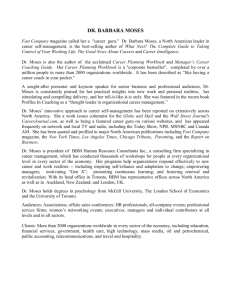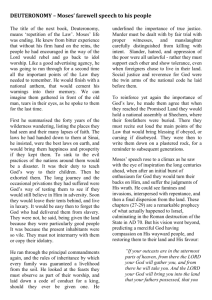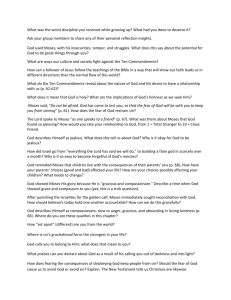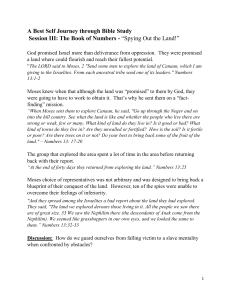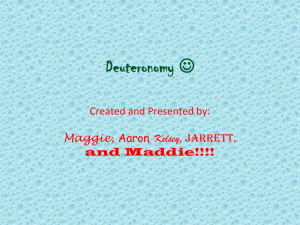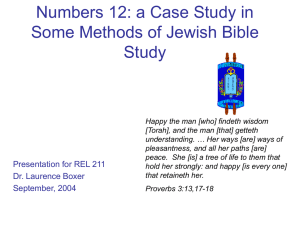Drash on Shemot - shared by Emily Matson Lewis, January 1, 2016
advertisement
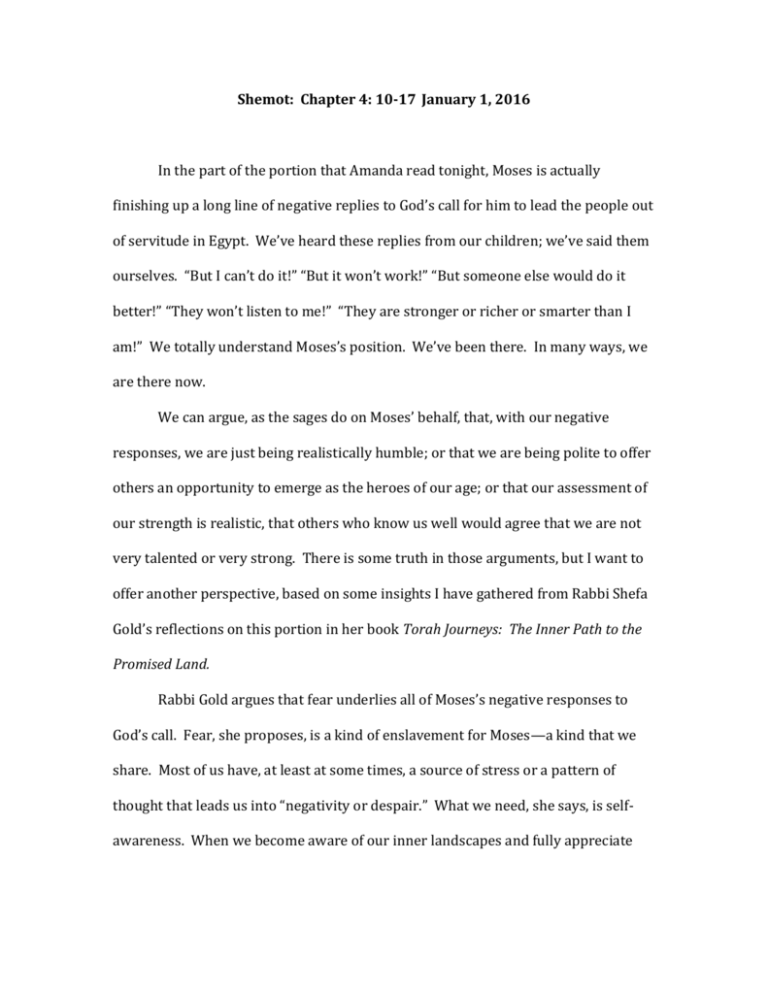
Shemot: Chapter 4: 10-17 January 1, 2016 In the part of the portion that Amanda read tonight, Moses is actually finishing up a long line of negative replies to God’s call for him to lead the people out of servitude in Egypt. We’ve heard these replies from our children; we’ve said them ourselves. “But I can’t do it!” “But it won’t work!” “But someone else would do it better!” “They won’t listen to me!” “They are stronger or richer or smarter than I am!” We totally understand Moses’s position. We’ve been there. In many ways, we are there now. We can argue, as the sages do on Moses’ behalf, that, with our negative responses, we are just being realistically humble; or that we are being polite to offer others an opportunity to emerge as the heroes of our age; or that our assessment of our strength is realistic, that others who know us well would agree that we are not very talented or very strong. There is some truth in those arguments, but I want to offer another perspective, based on some insights I have gathered from Rabbi Shefa Gold’s reflections on this portion in her book Torah Journeys: The Inner Path to the Promised Land. Rabbi Gold argues that fear underlies all of Moses’s negative responses to God’s call. Fear, she proposes, is a kind of enslavement for Moses—a kind that we share. Most of us have, at least at some times, a source of stress or a pattern of thought that leads us into “negativity or despair.” What we need, she says, is selfawareness. When we become aware of our inner landscapes and fully appreciate the power of whatever holds us back, then we can cry out for God’s help--and we will be helped. Gold teaches us that God God’s-self needed to become aware of the people’s enslavement in Egypt. Gold focuses on the four verbs that precede God’s action: God hears the people, remembers the promises, sees the people’s plight, and knows their pain. We need to hear the forces within us that hold us back; we need to remember the promises God has made to be at our side and to help us both in peaceful times and in distressing times (we also need to remember those times when help did come to us---unexpectedly, even when we had despaired). We need to see what needs to be done, what changes need to come about. We need know that we will not be alone, that growth and change are possible, with help. Some people are distressed that Judaism does not have a God with a human face, a god who once spoke as we all speak to one another—with a human voice. I like that our God is not confined to the human, even as God resides in each human and in all of the created world or worlds. I have had experiences in which I believe that I heard God’s “voice,” but that’s my personality and my history speaking as I say that. What I might call a clear, still, small voice, another person experiences as a flash of insight or a rush of energy and resolve. If we take a moment for a quick survey of our world, I suspect we all marvel that this world is not consumed by its problems and its violence. Challenged, yes. Unnerved, certainly. But all of our worlds --taken together –become that bush that burns, still unconsumed. Let us all look within to hear our own arguments with ourselves when the world or other people challenge us. Let us also hear our own arguments with God or our arguments with Jewish teachings about how to live in the world with integrity. Let us remember that we are a people for whom many promises are still in effect. We all have God at our sides, in whatever shape or with whatever voice that presence may adopt to approach us as individuals. We also all have—if we will reach out—a brother Aaron, or a sister Miriam, or a father-in-law Jethro, or appointed judges filled with zeal for justice,--or physical things, like a rod for Moses, or for us perhaps a van, or tools, or a library, or resources of any and all kinds—all available to help us. May we put aside our inner fears, our arguments with ourselves, and our denigration of our abilities in the New Year. May we name what holds us back. And may we remember that God is with us in all of our strivings for peace and reconciliation, for growth and community. Shabbat Shalom!


